- Home
- Features
- Movies/Media
- Collectibles
- Comics/Books
-
Databases
-
Figure Database
>
-
X-Plus Toho/Daiei/Other
>
- X-Plus 30 cm Godzilla/Toho Part One
- X-Plus 30 cm Godzilla/Toho Part Two
- X-Plus Large Monster Series Godzilla/Toho Part One
- X-Plus Large Monster Series Godzilla/Toho Part Two
- X-Plus Godzilla/Toho Pre-2007
- X-Plus Godzilla/Toho Gigantic Series
- X-Plus Daiei/Pacific Rim/Other
- X-Plus Daiei/Other Pre-2009
- X-Plus Toho/Daiei DefoReal/More Part One
- X-Plus Toho/Daiei DefoReal/More Part Two
- X-Plus Godzilla/Toho Other Figure Lines
- X-Plus Classic Creatures & More
- Star Ace/X-Plus Classic Creatures & More
-
X-Plus Ultraman
>
- X-Plus Ultraman Pre-2012 Part One
- X-Plus Ultraman Pre-2012 Part Two
- X-Plus Ultraman 2012 - 2013
- X-Plus Ultraman 2014 - 2015
- X-Plus Ultraman 2016 - 2017
- X-Plus Ultraman 2018 - 2019
- X-Plus Ultraman 2020 - 2021
- X-Plus Ultraman 2022 - 2023
- X-Plus Ultraman Gigantics/DefoReals
- X-Plus Ultraman RMC
- X-Plus Ultraman RMC Plus
- X-Plus Ultraman Other Figure Lines
- X-Plus Tokusatsu
- Bandai/Tamashii >
- Banpresto
- NECA >
- Medicom Toys >
- Kaiyodo/Revoltech
- Diamond Select Toys
- Funko/Jakks/Others
- Playmates Toys
- Art Spirits
- Mezco Toyz
-
X-Plus Toho/Daiei/Other
>
- Movie Database >
- Comic/Book Database >
-
Figure Database
>
- Marketplace
- Kaiju Addicts
|
Godzilla 2000: Millennium (ゴジラ2000 ミレニアム Gojira Nisen: Mireniamu) is a 1999 Japanese science fiction kaiju film directed by Takao Okawara and written by Hiroshi Kashiwabara and Wataru Mimura. It was the twenty-third film released in the Godzilla series, and is the only film to feature Orga. The film was released on December 11, 1999. Sony Pictures Entertainment's TriStar division, having the rights to the franchise at the time, released the film in the United States and Canada in August 2000 as Godzilla 2000; the last in the main Godzilla series to make a North American theatrical run until the Legendary Pictures remake. The film ignores continuity established by any previous films, aside from the original. The film was released on DVD by Sony Pictures on December 26, 2000, also under the title Godzilla 2000. 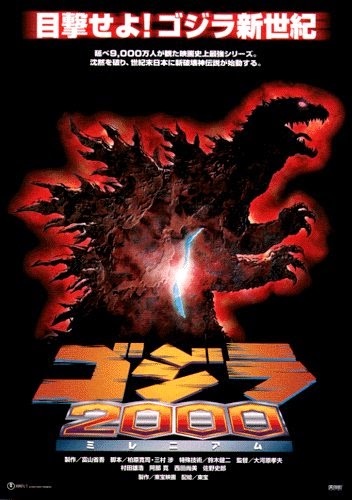 Plot Godzilla is a literal force of nature to Japan (after the incident in 1954). After Y2K, the Godzilla Prediction Network (GPN) functions independently to study the mutant dinosaur and predict his landfalls. Meanwhile, the scientists of Crisis Control Intelligence (CCI) find a sixty million year old UFO deep in the Japan Trench. As CCI attempts to raise the UFO to study it, it takes off into the sky on its own. Godzilla arrives and battles the Japan Self Defense Forces, now equipped with powerful Full Metal Missiles, but the UFO appears, searching for genetic information that only Godzilla possesses. It fights Godzilla to a standstill, driving the monster underwater, and then lands to replenish its solar power. Yuji Shinoda, the founder of the GPN, discovers the secret to Godzilla's regenerative properties (named Organizer G1 in the Japanese version, but Regenerator G1 in the North American release), but so has the UFO. It frees itself from the JSDF's attempts to contain it, and heads for Shinjuku. After landing atop Tokyo Opera City Tower, it begins to drain all the files about Godzilla from Tokyo's master computers. CCI attempts to destroy the UFO using explosive charges, but Shinoda, attempting to find out more about the aliens, is nearly caught in the blast. He survives, and joins the rest of the cast on a nearby rooftop, watching the UFO. Almost in response, the UFO broadcasts its message of invasion and creating a new empire on earth, and Shinoda reveals that the aliens are after the regenerative properties contained inside Godzilla's DNA so that they may use it to re-form their bodies. Godzilla arrives and again battles the UFO. However, he is subdued by the UFO's assault, and it absorbs some of his DNA, which the aliens use to reform themselves outside the space ship as the gigantic Millennian. However, earth's atmosphere is different to the one the Millennian used to live in and so when it exposes itself to the atmosphere, it mutates into a horrible monster named Orga. Godzilla recovers and fights Orga, which calls on the UFO to aid it in battle, but Godzilla destroys it with a blast of his atomic ray. With the UFO decimated, Godzilla continues to strike the alien being, but the damage inflicted is quickly overcome by the creature's new healing factor, a trait the beast obtained from Godzilla's DNA. Eventually gaining the upper hand, Orga drains more of Godzilla's DNA, trying to convert itself into a Godzilla clone. Finally, Orga opens its mouth, intending to swallow Godzilla whole, but Godzilla tricks it by deliberately throwing his head into its throat. While Orga begins to transform, Godzilla unleashes his nuclear pulse, beheading Orga and blowing the alien to bits. Mitsuo Katagiri, head of CCI, dies when Godzilla partially destroys the roof of the building where he, Shinoda and the scientists were observing the battle. The remaining cast on the roof wonders why Godzilla protects them, even though he attacks them and they attack him. They eventually come up with, and agree on, the theory that perhaps "there is a piece of Godzilla in all of us" as Godzilla begins rampaging through Tokyo, but not end yet. Orga Orga (オルガ Oruga) is a Millenian that mutates after absorbing Godzilla's DNA. Orga is a hunch-backed monster with a thick, rubbery gray hide; most prominent are his massive three-clawed hands, which he uses to walk like a gorilla (though only in this movie; in all of his video game appearances, Orga walks normally). He has a short, thick tail and a short neck as well. His face has a square jaw with a prominent chin, lined with rows of serrated teeth. He can fire an energy wave from the hole in its left shoulder, and he is able to leap vast distances and heights. He also has an accelerated healing factor. Finally, Orga is able to absorb an opponent's DNA through his bite to gain their abilities and appearance; and can even detach his upper and lower jaws like a snake to unfold a hidden membrane in order to swallow an enemy whole and morph into it. Cast
Box Office (Japan) Godzilla 2000 was produced on a budget of approximately $8,300,000. It opened in Japan on December 11, 1999 and grossed roughly $15,000,000 during its box office run, with approximately 2,000,000 admissions. The film was a moderate box office success, and was Japan's highest-grossing domestic release of the 1999 holiday season, partially due to the Y2K hype of the late 1990s. English Versions There were two English dubbed versions of this film. As is standard practice for Toho, the film was originally dubbed in Hong Kong for use in Toho's international version. A few lines from the international dub can be heard in the theatrical trailer for Sony's theatrical release, although the film was entirely re-dubbed by Asian-American voice actors (Schlesinger deliberately made this choice because he did not want the characters to sound like they were "from Wisconsin."). Only one line from the international version ("As long as the beer's cold, who cares?") was used in the re-dubbed North American version. Toho apparently prefers the North American version so much that the international version has never been officially released anywhere in the world. 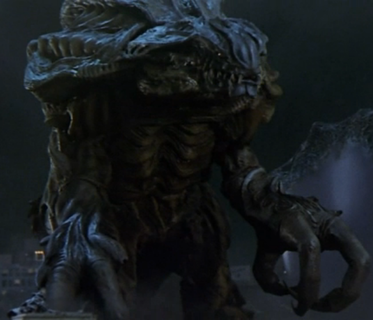 Tristar Pictures licensed Godzilla 2000 for theatrical distribution in North America. It would be the first and only Japanese Godzilla movie since Godzilla 1985 to be released in North American theaters. Mike Schlesinger, who supervised the North American release and adapted the script, said, "It (Godzilla 2000) was such a spectacular success in Japan, we decided it was worth taking a shot, maybe the time was right for Godzilla to come back to theaters."[citation needed] Sony spent approximately $1,000,000 to re-edit and dub the movie in English, and an addition $10–12 million to market. Alterations The English dubbed version of the film runs 99 minutes - eight minutes shorter in comparison to the 107-minute Japanese version. Most of these were minor edits done to improve the pacing, and the sound design of the movie was completely re-worked. J. Peter Robinson composed some new music meant to supplement Takayuki Hattori's music. The dubbing has a somewhat humorous, tongue-in-cheek tone to it, apparently in homage to Godzilla dubs of the 60s and 70s, with lines such as "Great Caesar's Ghost!", "Bite me!" and "these missiles will go through Godzilla like crap through a goose!". Some fans have criticized the English dubbed version of Godzilla 2000 for camping up what they perceive as a "serious" movie;[4] however, Toho and Takao Okawara approved all the changes to the film in advance, and various amusing sequences throughout the story (such as people comically surviving Godzilla's rampage early in the film) establish a light-hearted tone and make it evident that it wasn't meant to be taken seriously. In an interview in Video Watchdog #71, Schlesinger noted that people in real life tend to speak humorously; he also felt that giving audiences some intentionally funny dialogue would make them less inclined to laugh at the monster scenes, which were supposed to be taken seriously. Originally, the film ended with the words "The End?" in cartoonish lettering, but Mike Schlesinger and Toho rejected that. "The End?" was removed from later home video and television releases. The ending was mistakenly retained for the out of print Spanish-subtitled VHS of the film. 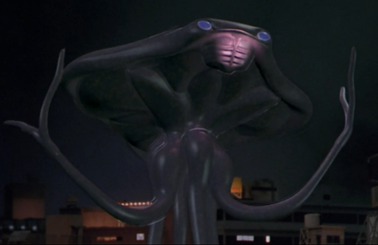 Box Office (US) Tristar Pictures released Godzilla 2000 in 2,111 North American theatres on August 18, 2000. It grossed $4,407,720 ($2,087 per screen) in its opening weekend, on its way to a $10,037,390 final gross. Future Millennium Godzilla films would be released direct-to-DVD in North America. Critical Reception The North American release of Godzilla 2000 met with mixed to positive critical reaction. It currently holds a rating of 57% at Rotten Tomatoes among all critics. Bruce Westbrook of the Houston Chronicle said the film "taps into a now-rare and innocent sense of wonder," and that "its action scenes are well-conceived." Owen Gleiberman of Entertainment Weekly gave the film a "B" grade, saying that Godzilla 2000 "lands on an imaginative fault line somewhere between tackiness and awe." Jay Carr of the Boston Globe called Godzilla 2000 "a ton of fun, and then some." Lou Lumenick of the New York Post said "it's great to have the big guy back." James Berardinelli of ReelViews said the film "uses the Godzilla formula effectively" and "represents solid, campy, escapist entertainment." Maitland McDonagh of TV Guide praised the film, saying that "fans won't want to miss this addition to the canon." Susan Wloszczyna of USA Today said Godzilla 2000 "may be dull, but the familiarity of it all makes it feel ceremonial, a reassuring ritual." David Edelstein of Slate said that he "periodically tranced out," but added that "it's fun to see" and "it still manages to dispel some of the lingering stink of Roland Emmerich's 1998 remake." Stephen Holden of the New York Times wasn't impressed, saying that "only a die-hard fan of the long-running Japanese Godzilla series could love Godzilla 2000." Similarly, Stephen Hunter of the Washington Post remarked, "Godzilla, go home." Among kaiju-related websites, Stomp Tokyo said "there are some pretty impressive special effects," and concluded that "Godzilla 2000 delivers fairly well, if not spectacularly." Toho Kingdom criticized the Japanese version, saying "it’s not hard to see why Godzilla 2000 was poorly received in Japan," but added that "the US version ... is infinitely better than its poorly paced Japanese counterpart. In all, the US version made numerous badly needed cuts from the film to tighten it up."
0 Comments
|
Release Dates
November 2023
|
|
© 2011-2024 Kaiju Battle. All Rights Reserved.
|
Visit Our Social Media Sites
|
Proudly powered by Weebly
|
- Home
- Features
- Movies/Media
- Collectibles
- Comics/Books
-
Databases
-
Figure Database
>
-
X-Plus Toho/Daiei/Other
>
- X-Plus 30 cm Godzilla/Toho Part One
- X-Plus 30 cm Godzilla/Toho Part Two
- X-Plus Large Monster Series Godzilla/Toho Part One
- X-Plus Large Monster Series Godzilla/Toho Part Two
- X-Plus Godzilla/Toho Pre-2007
- X-Plus Godzilla/Toho Gigantic Series
- X-Plus Daiei/Pacific Rim/Other
- X-Plus Daiei/Other Pre-2009
- X-Plus Toho/Daiei DefoReal/More Part One
- X-Plus Toho/Daiei DefoReal/More Part Two
- X-Plus Godzilla/Toho Other Figure Lines
- X-Plus Classic Creatures & More
- Star Ace/X-Plus Classic Creatures & More
-
X-Plus Ultraman
>
- X-Plus Ultraman Pre-2012 Part One
- X-Plus Ultraman Pre-2012 Part Two
- X-Plus Ultraman 2012 - 2013
- X-Plus Ultraman 2014 - 2015
- X-Plus Ultraman 2016 - 2017
- X-Plus Ultraman 2018 - 2019
- X-Plus Ultraman 2020 - 2021
- X-Plus Ultraman 2022 - 2023
- X-Plus Ultraman Gigantics/DefoReals
- X-Plus Ultraman RMC
- X-Plus Ultraman RMC Plus
- X-Plus Ultraman Other Figure Lines
- X-Plus Tokusatsu
- Bandai/Tamashii >
- Banpresto
- NECA >
- Medicom Toys >
- Kaiyodo/Revoltech
- Diamond Select Toys
- Funko/Jakks/Others
- Playmates Toys
- Art Spirits
- Mezco Toyz
-
X-Plus Toho/Daiei/Other
>
- Movie Database >
- Comic/Book Database >
-
Figure Database
>
- Marketplace
- Kaiju Addicts
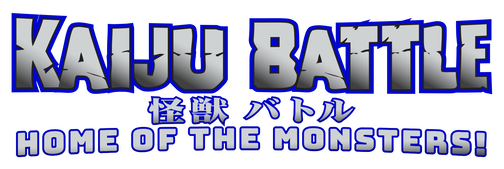

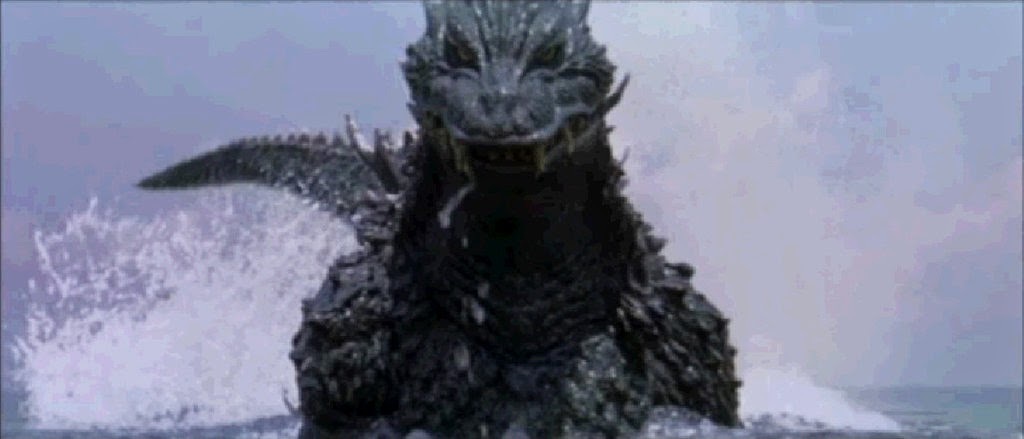
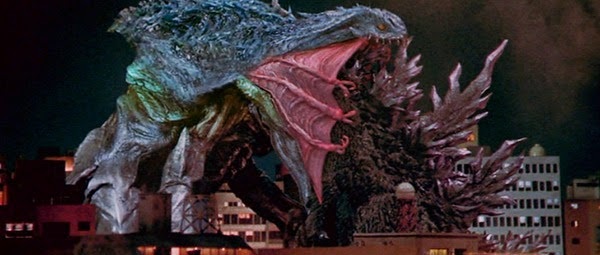
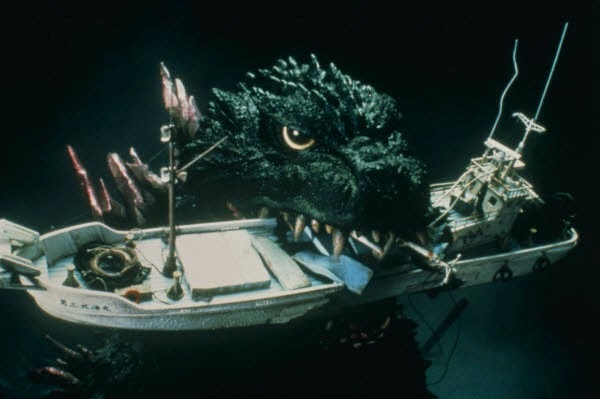
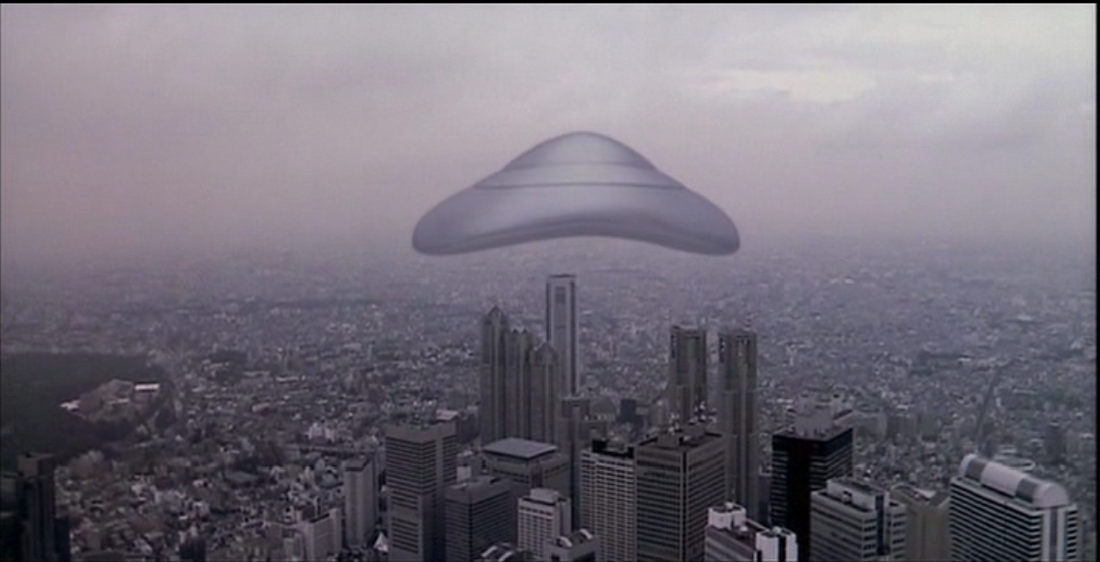
 RSS Feed
RSS Feed